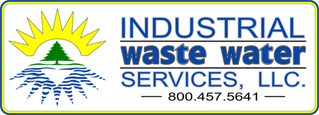 IWWS has been helping industries deal with this problem for years. 30 years ago we were heavily involved in the poultry industry. Many of these plants can produce 8,000 gallons of wet sludge a day and most produced more. We began using belt filter presses to remove as much free water as possible thus reducing the volume that had to be dealt with. By doing this it allows the renderer to process this at the mill much quicker because of the reduced moisture content. They now do not have to evaporate as much water which saves time as well as money that is spent on energy. At some plants, especially in the southeast, the plants can get the sludge dry enough to not pay a dewatering surcharge. Some can even get paid for the sludge if it is dry enough.
IWWS has been helping industries deal with this problem for years. 30 years ago we were heavily involved in the poultry industry. Many of these plants can produce 8,000 gallons of wet sludge a day and most produced more. We began using belt filter presses to remove as much free water as possible thus reducing the volume that had to be dealt with. By doing this it allows the renderer to process this at the mill much quicker because of the reduced moisture content. They now do not have to evaporate as much water which saves time as well as money that is spent on energy. At some plants, especially in the southeast, the plants can get the sludge dry enough to not pay a dewatering surcharge. Some can even get paid for the sludge if it is dry enough.
Other industries produce a sludge that has no beneficial reuse. This means that they need to dispose of the sludge in a landfill. For sludge to qualify for landfill disposal it must pass a paint filter test. In this test they place a small amount of the sludge in the filter and after a certain period of time if no water drips through the filter they will accept it at the landfill. In most of these cases we have utilized recessed chamber presses to dewater the sludge. The sludge is pumped into the press with a diaphragm pump and the pressure generated by the pump presses the sludge into the press and forces the free water out. The water is returned to the wastewater treatment system to be processed again with the incoming wastewater. After the press is full, and dewatered, the cakes are released into a roll off box. When this box is full it is picked up and taken to the landfill for disposal.
 Some industries create a sludge that is hazardous and is not allowed in most landfills. This means that any sludge produced has to be taken to an approved site. These sites are usually not very close and the cost is much higher for disposal. This means that the more water you can get out of the sludge the less money you have to spend.
Some industries create a sludge that is hazardous and is not allowed in most landfills. This means that any sludge produced has to be taken to an approved site. These sites are usually not very close and the cost is much higher for disposal. This means that the more water you can get out of the sludge the less money you have to spend.
Some municipal plants are now utilizing this same approach for thickening their sludge. They would normally spread the sludge on drying beds to dewater. These take up a lot of space and many times the land is very expensive. By using this technology it also helps in times of inclement weather.
